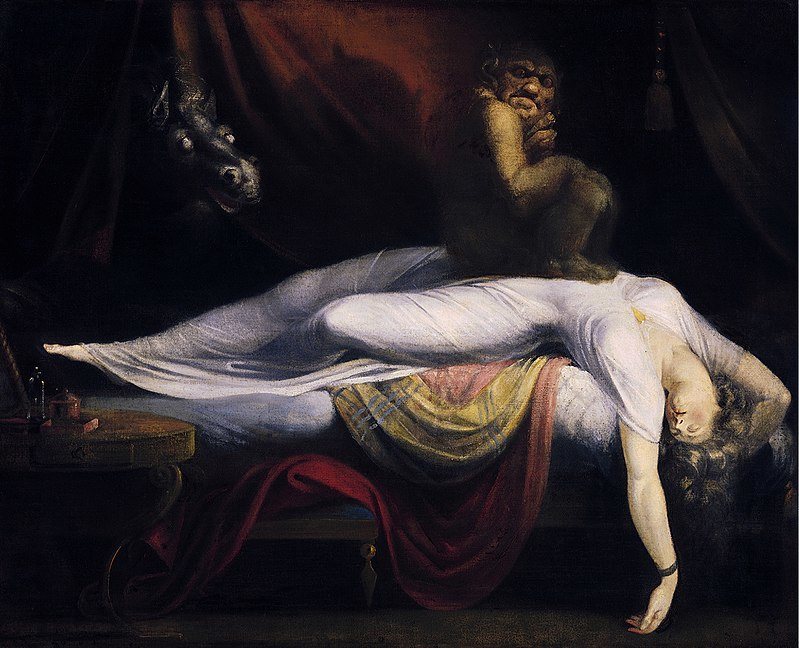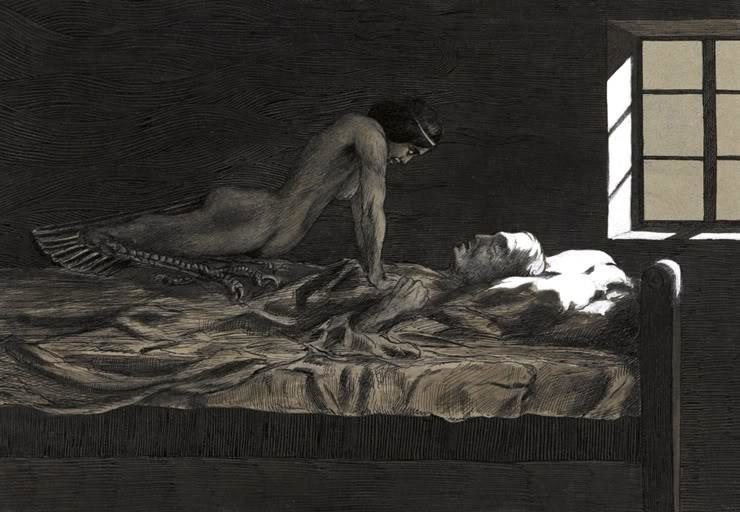
Nightmares, as we use the word today, are vivid, personal terrors whipped up by a person’s subconscious just for them—a giant snapping turtle, a car that starts backing away from home on its own, a rocket ship with two witches in the backseat eating a potato/voodoo doll that causes the front seat to disappear with every bite.
But in centuries past a night “mare” was a very specific type of frightening nocturnal visitor, a spirit or demon that would sit on a person’s chest and suffocate them.The root of the English word “nightmare” is the Old English maere. In Anglo-Saxon and Old Norse, a mara was something known to sneak into people’s rooms at night, plop down on their bodies, and give them bad dreams. When the mare came to visit, the victim would feel a heavy weight—it might start at the feet, but it always settled on the chest—and lose the ability to move. Mares could be sent by sorceresses and witches: One Norwegian king died when his wife, tired of waiting for 10 years for him to come home, commissioned a mare attack. The conjured spirit started by crushing the king’s legs while his men tried to protect his head. But when they went to defend his legs, the mare pressed down on his head and killed him.

This apparition roamed across Europe—it was a mahr in Germany, a marra in Denmark, a mare in French. The visions that the mare brought upon its victims were often called “mare rides”—martröð in Anglo-Saxon, mareridt in Danish, and mareritt in Norwegian, according to (now retired) folklore scholar D.
L. Ashliman.Ashliman collected accounts of mares from across Europe, as well as advice for how to get rid…
The post The Original ‘Nightmare’ Was a Demon That Sat on Your Chest and Suffocated You appeared first on FeedBox.